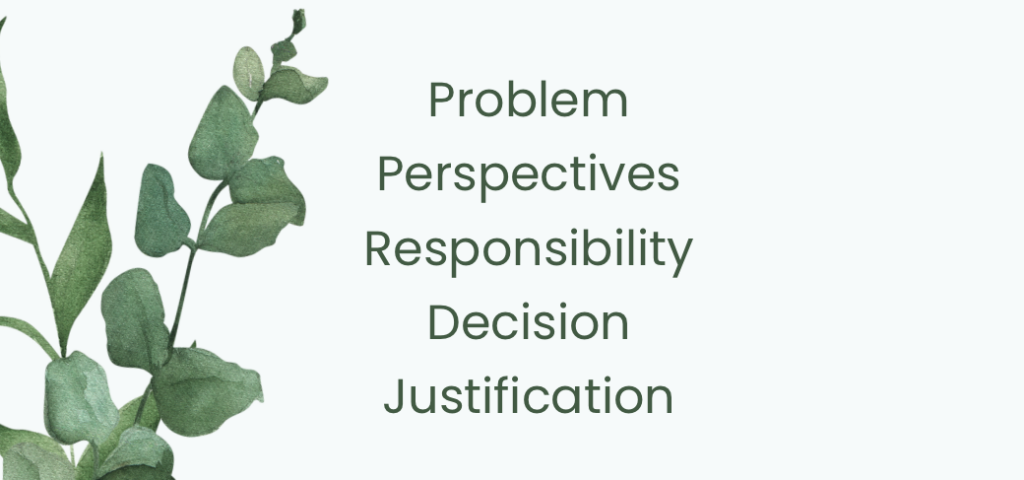I wrote my CASPer in 2020 and received an acceptance to a medical school where CASPer scores were used competitively. Although many believe that you can’t study for CASPer, this is far from the truth. There are numerous CASPer strategies that helped me succeed when I wrote the CASPer, and this same advice has helped other students score in the 4th quartile and achieve medical school acceptances.
Check out our guide on how to create a winning medical school application here.
What is CASPer?
CASPer (Computer-Based Assessment for Sampling Personal Characteristics) is a situational judgment test developed at McMaster University. This test assesses what one would do in ethically ambiguous situations, asks for their rationale, and helps to determine behavioural tendencies of applicants pursuing people-centered professions, such as those in healthcare.

How Does CASPer Work?
The CASPer section has two sections: video responses and typed responses.
In the video response section, there are 2 word-based scenarios and 4 video-based scenarios. You will record videos to answer 2 open-ended questions presented one at a time. You will have 1 minute to record each response.
In the typed response section, there are 3 word-based scenarios and 5 video-based scenarios, where you will type answers to 3 open-ended questions that are presented all on the same page. You will have 5 minutes total to respond to all 3 questions.
The entire test takes 90 to 110 minutes to complete, with an optional 10-minute break after the video response section and another 5-minute break halfway through the typed-response section. Your answers are scored by a group of human raters—each question is graded by a different set of raters.
The CASPer test is officially marked based on how well you demonstrate the 10 principles:
- Empathy
- Ethics
- Problem Solving
- Communication
- Collaboration
- Professionalism
- Equity
- Resilience
- Motivation
- Self Awareness
What are the Best CASPer Resources?
Many students may recommend that you read “Doing Right”. I personally found the “Washington Ethics in Medicine” website more helpful. You don’t need to read every chapter in detail.
You must realize that CASPer is not a medical ethics test, as questions revolve around everyday situations rather than complex medical cases. These questions are simply used to assess your morality. While reading on ethics, try to focus primarily on understanding key terms like “non-maleficence,” “beneficence,” “autonomy,” “confidentiality”, and “justice.”
Once you understand these terms, review the case studies at the end of each bioethics topic on the Washington Edu site. Formulate your responses and compare them with the provided answers. These scenarios are tailored for medical professionals, so it’s okay if your answers aren’t highly detailed. Focus on identifying ethical decision-making patterns, like patient autonomy and the right to information.
One last resource I do highly recommend is BeMo’s Guide to CASPer Prep. This is not an endorsement—this resource is affordable, provides countless practice problems, and provides both examples of excellent and mediocre answers. While some of their example model answers are lengthy and beyond what we can realistically type within the provided time limit, the ideas they incorporate into their answers are excellent and tend to be what CASPEr scorers are looking for.
The Principles for Acing the CASPer
1. Consider Both Sides
Always address both perspectives before forming a conclusion. For example, if Student X cheated on a test, first explore their motivations and pressures. Then, consider the impact on other students and the fairness of the situation. Try to have a balanced approach to all situations.
2. Resolve Issues Locally
Try to resolve conflicts at the local level before involving higher authorities. For instance, encourage Student X to speak to the professor about their actions before you escalate the matter. CASPer has a preference for more direct, personally responsible resolutions.
3. Use Buzzwords Appropriately
Terms like “non-judgmental” and “collaboration” are useful, but it’s more impactful to show how you embody these qualities. For example, instead of just saying you’ll be non-judgmental, explain how you would listen attentively to Student X and provide them the space to discuss their actions in a private setting.
4. Avoid Negative Language
Refrain from using words like “confront, “compliant”, or “report to authorities”, which carry negative connotations. Opt for more neutral or positive language to maintain a professional tone.
5. Incorporate Personal Experiences
Personal anecdotes can make your answers stand out. Briefly mention your own experiences with academic stress to empathize with Student X‘s situation. This adds a personal touch and demonstrates genuine understanding.
6. Creative Resolutions
Think beyond the obvious solutions. If you are encouraging Student X to confess to the professor, also suggest providing them with resources or tutoring to prevent future issues. Creativity in problem-solving can set your responses apart.
Categories of CASPer Questions
CASPER questions usually belong into two categories: situational questions (how you handle an ethically ambiguous scenario), and personal questions (asking you to reflect on a principle, personal experience, or quote).
The Structure for the Perfect CASPer Response
The main component of scoring highly on situational questions is to have a set framework, with the most common being the PPRDJ formula. A structure is important as it allows you to tackle unexpected/difficult questions by simply following the framework, allowing for a more comprehensive and organized answer.
- Problem: restate the problem
- Perspectives: give your view of the perspectives of the interested parties
- Responsibility: weigh your responsibility in whatever position you’re given in the prompt
- Decision: state your decision
- Justification: give your justification

Tips and Tricks for Acing the CASPer Test
1. Never make assumptions, as the conflict from all situational questions will stem primarily from a lack of understanding.
Gather information and consider multiple perspectives/possibilities in CASPER questions, usually by talking with the other parties involved. Phrases like “private discussion”, “non-confrontational”, and “non-judgemental” can be incorporated in almost every question and improve your score even though it may seem repetitive and generic.
2. Typing speed does matter.
Despite CASPer stating that typing speed does not affect score, having a longer answer generally allows for more opportunity to demonstrate your understanding of the situation. Longer, well-thought out answers typically yield higher scores, assuming they are not redundant or contain errors. If your typing speed is <60 words per minute, I do recommend improving it to enhance your score.
3. Practice your public speaking skills.
CASPer markers are trained to only consider the content of what you say, however human bias will still inevitably favour test-takers who are able to voice their thoughts concisely, confidently, and eloquently. If you’re not a strong interviewer, I would recommend practicing by recording yourself and analyzing the video, practicing with others, or by getting feedback from someone who will be honest with their criticism. Practice will help a lot to make you sound more natural and confident.
4. Use key phrases or buzzwords whenever possible.
While it may seem a bit disingenuous, throwing in buzzwords or phases like “maintaining confidentiality”, “respecting autonomy”, “remaining empathic”, “withholding integrity” etc, helps answers appear clear, concise, and confident. Between “I maintained the patient’s privacy because it’s important” vs. “I respected the patient’s need for privacy to make a confidential decision”, which sounds more impressive to you?
5. Have examples for all common personal situations.
Using the STARR method, be able to describe a situation, task, action, result, and reflection for the following list of examples (although not exhaustive):
- A time you dealt with conflict
- What are your strengths/weaknesses
- A time you had a conflict with authority
- A time you lost your integrity
- Future goals
- A time you demonstrated professionalism
- A time you felt awkward
- Overcoming a difficult situation
- A time you collaborated effectively
- When you were unjustly criticized
- A time you took initiative
- A time where you asked to do something that conflicted with your values
- A role model you have
- A time where you support others in difficult times
- A time you failed
#6. Practice with others and incorporate their feedback.
A highly effective strategy involves studying with a small, trusted group of students or peers. Select a CASPer prompt and have each member in the group independently write their response into a shared Word document. Afterwards, exchange answers and discuss the strengths and weaknesses of each response, identifying areas for improvement.
As you receive constructive feedback, the quality of your answers will slowly improve. When you are reviewing strong responses, it may provide inspiration regarding approaches to certain question stems, helping you to generate more refined, articulate, and impressive answers to similar questions.
#7. Focus on proactive and ethical solutions.
If a question were to ask you address increased rates of speeding of drivers on highways, the intuitive response would be to “increase fines to discourage drivers from speeding”. Instead, focus on an upstream policy or education change, such as “changing and investing into young drivers education programs to highlight the dangers of speeding, targeting drivers when they are most susceptible to picking up dangerous driving habits”.
For ethically ambiguous situations, opting quickly to punishment to address behaviour can often make you seem punitive. If possible, focus on what changes can be made upstream to prevent an individual from engaging in those behaviours again.
#8. Practice, practice, practice.
Contrary to belief, CASPer is not something you can just wing. Practice does improve your score, as it makes you familiar with an effective framework and coming up with clear answers spontaneously. On test date, you do not want to be having to think of an answer—the answer should be coming to you spontaneously.
Final Thoughts
I hope these tips are helpful. Remember, different strategies work for different people, so experiment to find what suits you best. The path to medical school is arduous, and I wish all of us success in navigating these challenges. Good luck, I have faith in you!







